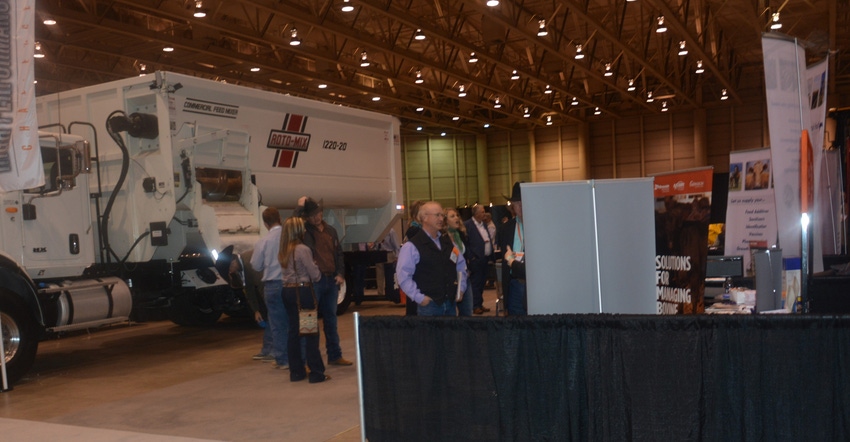December 17, 2019

Policy focused on the labeling of imitation meat and dairy products, stock water permits, the lesser prairie chicken and other key issues was approved by members of the Kansas Livestock Association during the group’s annual business meeting Dec. 6 in Wichita.
Ranchers, feeders and dairymen provided input during regional roundtable meetings in the fall and committee and council meetings at the convention, with final approval coming from the general membership.
“Many KLA members were involved in creating policy for 2020,” says KLA President Harry Moser, a rancher from Wheaton. “This broad participation makes for strong policy that will help KLA effectively represent the business interests of its members.”
KLA members believe consumers should be equipped to make informed decisions when purchasing meat food products versus imitation meat products. Therefore, existing policy was amended to oppose allowing fake meat and dairy products, and lab-grown meat to inappropriately use nomenclature associated with actual meat and dairy products. In addition, the policy supports legislative, regulatory or judicial action to protect consumers by ensuring fake meat and dairy products, and lab-grown meat are labeled accurately.
Members approved a new resolution regarding stockwater facility permits. Policy supports a permit that would allow an individual water right(s) to exceed the annual authorized quantity of the individual water right(s), as long as the facility’s total authorized quantity was not exceeded and did not impair a senior water right from the same local source of supply.
The membership recognized the important role the chief engineer, chosen by the Kansas secretary of agriculture, plays within the livestock industry. Consequently, a new resolution was approved to support the secretary, in conjunction with the Kansas Legislature, adjusting the compensation of the chief engineer to be competitive with surrounding states. The policy also supports changes to state law necessary to allow the Kansas secretary of agriculture to appoint any capable and qualified person to be chief engineer, regardless of professional degree or certification.
Existing policy focused on the lesser prairie chicken was amended by the membership. While KLA continues to support voluntary, incentive-based efforts like the Lesser Prairie Chicken Range-Wide Conservation Plan as means to preserve and enhance the population of the birds in Kansas, KLA members took the step of disapproving of the Western Association of Fish and Wildlife Agencies’ (WAFWA) management of the Range-Wide Plan.
KLA policy calls for WAFWA to resign as the plan’s administrator or make public a recent audit that identified specific areas of mismanagement and work with stakeholders to correct shortcomings identified in the audit. KLA members continue to oppose listing the lesser prairie chicken as a threatened or endangered species under the Endangered Species Act.
Members voted in favor of an amendment to policy addressing water conservation programs. The policy supports state law authorizing Local Enhanced Management Areas (LEMA), as long as any proposed LEMA has the support of local affected water right holders.
KLA policy on statutory liens was reaffirmed during the business meeting. Members support the current agricultural lien laws dealing with the feed and care provided to livestock and oppose any efforts to eliminate these liens or their priority.
Members reaffirmed a resolution focused on the protection of private property rights and use of eminent domain. The policy supports legislative, judicial and administrative initiatives to prevent the use of eminent domain powers by governmental entities as a tool to take private property from one party and transfer to another party for profit or private gain.
In addition, members support legislation that provides for full compensation to property owners for any property interest taken using eminent domain by governmental entities for public or private projects.
Policy on zoning of agricultural land and buildings also was reaffirmed by the membership. It supports current state laws that prohibit local governments from enacting any regulations that apply to agricultural land use or the construction and maintenance of buildings used for agricultural purposes outside of city limits and oppose any attempt to weaken those exemptions.
KLA members approved 62 resolutions for 2020. Other issues addressed in KLA policy range from cattle marketing to animal health to noxious weeds.
KLA is a 5,500-member trade organization representing the state’s livestock business on legislative, regulatory and industry issues at both the state and federal levels. The association’s work is funded through voluntary dues dollars paid by its members.
Source: Kansas Livestock Association, which is solely responsible for the information provided and is wholly owned by the source. Informa Business Media and all its subsidiaries are not responsible for any of the content contained in this information asset.
You May Also Like




